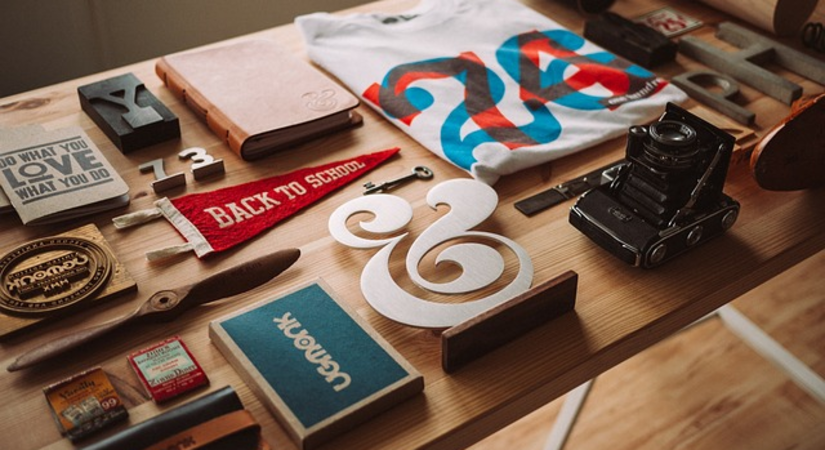Letting Go of Things You Don't Need
Most of us have things we no longer need around the house. As we go about our daily lives, we tend to focus on what we need to get done that day. Going through our belongings to see what we need and what we don’t isn’t a daily priority, so things accumulate in our homes and eventually take up too much space and cause clutter.
Even when it’s time to declutter, it can be tough to let these things go. Let’s look at the thoughts behind holding onto what we don’t need, and how to turn them around.
“I Might Need This Later”
It may be an art kit, some exercise equipment, or a piece of clothing. As you go through your belongings, you’ll start imagining scenarios in which you need that thing. But if you haven’t used it in the last six months, then you probably don’t. There are exceptions, of course, such as tools for repairs around the home, seasonal items, and baby items you’re keeping for your next child. Be honest with yourself about how likely you actually are to use the item again. If it seems unlikely, then you can get rid of it.
“It Has Meaning To Me”
Some of our belongings are associated with positive memories, and because of this, we like to hold onto them. In general, things aren’t so important, from a gift we received years ago to something we bought on vacation.. (We’ll cover the types you’ll want to keep later in this article.)
It’s the memories we treasure. Many of these items, like old tee-shirts or toys, can go. Take photographs of them, write in your journal about what they mean to you, and sell or donate the actual items.
“But It Cost So Much!”
You may feel guilty even thinking about getting rid of something that costs a pretty penny. Perhaps it’s a piece of antique furniture, a painting, or some gaming accessories you bought your kids that they never use. If you spent hundreds of dollars on something, shouldn’t you be using it?
Perhaps, but if you know you’re not going to, then you should get rid of it. It’s a “sunk cost,” as they say in economics. You paid for it, but now it’s just taking up space and making your life that much more difficult. Fortunately, you can sell many items in this category, maybe not for as much as you paid for them, but for enough that you can recuperate some of the cost.
“These Things Mean So Much!”
There are definitely some things you don’t use or look at often that you will want to keep. These are sentimental, highly personal items, and generally one-of-a-kind. They include yearbooks, scrapbooks, baby books, diaries and journals, a newspaper article that featured you, a book you wrote and published, family heirlooms, and your collectibles. That last category includes cards, comic books, dolls, figurines, and similar items. You’ll recognize these sorts of things as you go through your belongings. In some cases, you’ll want to keep photo albums, but unless there’s something special about the album itself, consider digitizing the pictures instead.
“What Do I Do With These Unneeded Things?”
We already mentioned that you can sell many of those old items you don’t need. eBay, Craigslist, and OfferUp are great places to try. Just make sure those items are in new or gently used condition. This is a great way to get rid of old paintings, furniture, books, clothing, and much more.
Once you’ve sold what you can and made a little money doing so, you can donate other items. Again, they should be at least in gently used condition. Bring them to thrift stores, especially ones that use the profits to help the community in some way. Also, you can deduct the value of these items from your taxes.
Next, you’ll get to the things that can be recycled. These include metal and glass, paper, electronics, and old clothes. If you have a recycling bin, you can put some of these items in it and let the city take them away. If not, search Google for recycling centers in your area. Electronics and clothing generally need to be taken to certain places that recycle them.
Some items are trash. You can simply put smaller trash items in garbage bags and set them out with the rest of the trash and recycling. Larger items require special handling, and you’ll need to call your city’s waste management division to come get them. You can also take many items to the nearby landfill.
“Now that I Got Rid of Those Things, My House is Still Cluttered!”
Yes, even after you’ve cleared out things you don’t need at all, you may find your home feels full and cluttered. That’s where self storage comes in. At Keylock Storage, we have storage units from small to extra-large, depending on how much space you need. You may just need to use your unit as an off-season wardrobe or sports equipment closet. Perhaps you run a business and need room for your stock. Or, maybe you need somewhere safe to keep those sentimental items we mentioned. Contact us and we can get you in the right unit for your needs.
The advantage of going through this before you rent a storage unit is that you’ll save money on storage and you won’t feel bad later for storing things that you don’t need, anyway. If you have any questions about our units or our business, feel free to give us a call.


